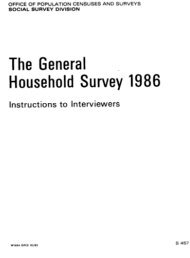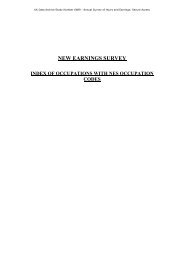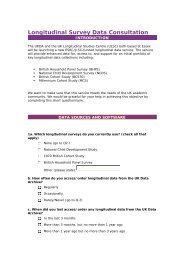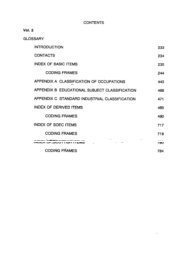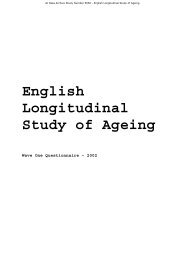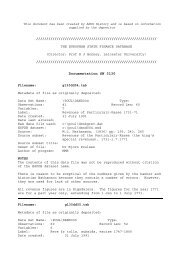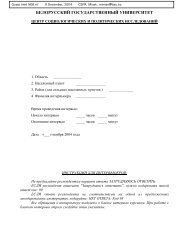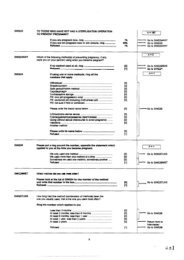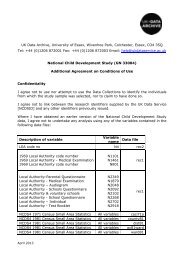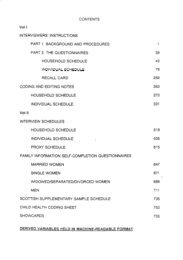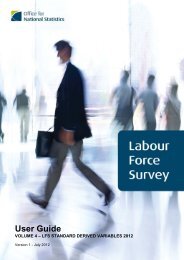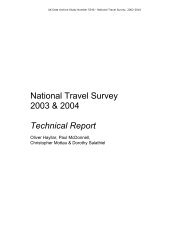OPEN - ESDS
OPEN - ESDS
OPEN - ESDS
You also want an ePaper? Increase the reach of your titles
YUMPU automatically turns print PDFs into web optimized ePapers that Google loves.
Most remunerate - and subsidiary employment Q’s.9(a)-(c)<br />
It is important that where there is more thsn one job the informants most<br />
remunerati~ job - whether as employee or self-employed - should be entered aS the<br />
first job. If, on probing at this question, it is found that Q1 (a) has been wrongly<br />
coded, eg coded self-employed when most remunerative job is as employee then recode<br />
Ql(a).<br />
Where somsone has arrangements to work with two d.iferent employers (evsn if one<br />
relates to casual work), both should ba entered, with the most remunerate w job<br />
described firat. If an informant perfonus the same occupational duties for eevsral<br />
employers, (oc~pation and industry detai 1s being identical for each eg domestic<br />
work for 3 private intitidual~ ), count as one job but make a note.<br />
Where a school leavsr is unemployed, employment queetions cannot bs asked.<br />
Ensure that if informant is a director then Code 1 has been ringed.<br />
PFJICISE OCCUPATION AND INDUSTRY DETAILS ARE NEEDED. FO11OW standard Social Survey<br />
procedure (Handbook p. 65). Note howe vsr, that directors of limited companies<br />
count ae employees even if they pay a self-employed person’s National Insurance<br />
contribution. If such a person has been coded self-employed at Q. 1, you should<br />
recode.<br />
Note that we wish to know for smployees their position eg Msnager and the number of<br />
eWloYees at their place of work. For the self-employed we wish to knew h.sw many<br />
employees they have. This ie ao that we can code socio-econom.ic groupings to make<br />
the PES compatible with other surveye.<br />
For informants on Community Programme (CP ) (ACE in NI ) note this fact and also the<br />
work they are doing and the type of industry in which that work ie being done.<br />
Directors/Self-employed Q’s.9(a)-(c)<br />
Directors of a limited company are to be treated as employees bscause they are<br />
legally employees of that limited company no matter how small it is.<br />
There are come difficult casee howevsr where an informant will be legally an<br />
employee of the limited company of which he is a director, but for accounts<br />
purposes handle the income, tsx and National Insurance contributions, etc as if<br />
self-employed. In these cases you should record him as an employee at Q 1-9(b) but<br />
enter details of income, tax and N.I. as if he is self-employed. Where this occurs<br />
please make full notes so that the office is aware of the circumstances.<br />
Laet pay details Q’s.1O-17<br />
This seriee of questions refers to the job described in Q.9 ae the most<br />
rsmunerati~ job as an employee, regardless of number of hours worked. These<br />
questions can relate to a past job only where the informant is out of employment<br />
and eeeking work or about to etart work (coded 3 or 4 at Q. 1).<br />
If aomsone has only recently started work and has not yet recei vsd any<br />
wages/salary, explain this in a note together with what he expects to receiw in<br />
his new job, and record at checking call detaile of bis pay if the first pay is<br />
recei vsd during the record-keeping period. Failing this, give details of his<br />
wage/salaq in his previous job (if any).<br />
57



